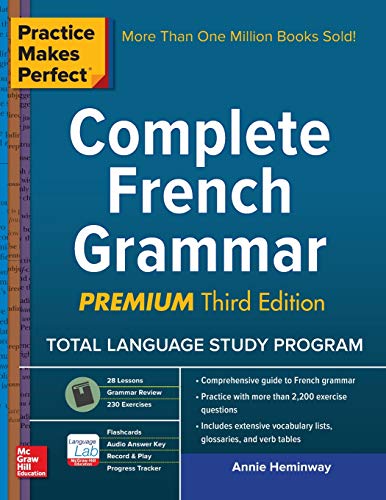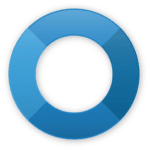
Best Way to Learn French in 30 Days
They say it takes 30 days to create a new habit.
What if I told you that you could even learn French in 30 days?
All it takes are some smart study strategies and quality resources to build a healthy French learning habit that lasts for the month—and way beyond.
In this guide, I’ll show how to learn as much French as you can in 30 days, including suggestions of useful apps and resources, as well as tips on how to create your own study plan!
Contents
- Step 1: Define Your French Learning Goals
- Step 2: Build Your Personal Reference Library
- Step 3: Bookmark Pronunciation Resources
- Step 4: Download Apps for On-the-go Learning
- Step 5: Create Your Study Plan
- Step 6: Follow Your Plan (but Be Flexible)
- And one more thing...
Download: This blog post is available as a convenient and portable PDF that you can take anywhere. Click here to get a copy. (Download)
Step 1: Define Your French Learning Goals
First things first: define your French learning goals. This means that you need to clearly outline why you’re learning French. Do you plan to travel to France and find a job? Do you want to read one of the French literary greats or watch and understand artsy French films? Do you simply want to be able to have a French conversation with a native speaker?
Just make sure your goals are realistic for how much time per day you’ll be spending on French. If you’re a beginner right now and you can only allot a half hour each day to learning French, it’s unrealistic to think that you’ll become an advanced speaker after only 15 hours of study throughout the month.
Step 2: Build Your Personal Reference Library
A good reference book will give you concise explanations for key language concepts that you can continue to build on way after the 30 days are up.
In my opinion, textbooks are perfect for getting an overview of the basics. They include essential grammar and vocabulary pertinent to the most common conversational experiences.
I recommend buying and using both a traditional French course textbook and a grammar guide. Grammar guides are books that focus solely on grammar.
I recommend “Barron’s French Grammar” or “Practice Makes Perfect: Complete French Grammar” for a grammar guide. I still use the latter with students to this day!
The only thing to note here is that textbooks can be limiting in the sense that they only expose you to the vocabulary they deem to be “essential.” This may be an issue because you may find you don’t need to learn the names of zoo animals if you’re trying to learn French for the purpose of traveling to Paris for a week.
So, be sure to look for vocabulary references that apply directly to the language goals you established in step one.
You can find excellent vocabulary references on Lawless French. There are tons of themed word lists organized by level.
Step 3: Bookmark Pronunciation Resources
Perfecting how to actually say things in French is an important skill that must be developed during your journey.
French can be a tricky language to pronounce as well as understand. With nasal consonants and liaisons between words, it can be hard to parse sentences into individual words. However, don’t fret! Learning the rules is easy with the internet.
Make sure to bookmark Forvo’s French audio dictionary and download the app (iOS or Android) onto your device. Forvo allows you to look up literally every word in French and listen to the word pronounced by native speakers.
Throughout your 30-day French learning journey, look up new words frequently on Forvo so that you can understand them when spoken and pronounce them correctly yourself.
ielanguages is another crucial tool to bookmark. You can learn about the language’s distinguishing sounds with ielanguages’ French phonetics tutorials as well as actually practice doing so with ielanguages’ phonetics exercises.
Further, you can learn and practice French pronunciation with Austin Community College’s interactive French tutorial.
Step 4: Download Apps for On-the-go Learning
French language apps are great for learning vocabulary and applying grammatical constructions in contained situations. They’ll pack a lot of learning and practice into relatively short periods of time.
And, best of all, these apps can be accessed anywhere!
- Duolingo is a popular language app you’ve probably heard of, but you might not know about some of its newer features. For example, Duolingo Stories is a set of mini-stories designed to improve your comprehension, while Tinycards is a catchy visual flashcards tool.
- Memrise is a to-the-point spaced repetition app with lots of French learning material. “Spaced repetition” means the app uses an algorithm to review information at set intervals, making the memorization process more efficient.
- Clozemaster is a little rudimentary in its design, but it’s a great place to learn French words in context such as sample sentences.
FluentU takes authentic videos—like music videos, movie trailers, news and inspiring talks—and turns them into personalized language learning lessons.
You can try FluentU for free for 2 weeks. Check out the website or download the iOS app or Android app.
P.S. Click here to take advantage of our current sale! (Expires at the end of this month.)
Step 5: Create Your Study Plan
The most important step to learning French in 30 days actually has little to do with the French language at all. You need to create a French study plan, so that you stay on track and accountable to yourself throughout the 30 days.
This will look different for every single learner, but there are two rules everyone should follow:
- Make sure each learning task is highly specific. “Complete the sentence structure exercises in my French grammar guide” is a much stronger task than “study sentence structure.”
- Make sure each learning task is directly related to your learning goals from step one. If your goal at the end of 30 months is to be able to get by on a trip to France, your tasks should focus on essential phrases, pronunciation skills and listening comprehension, not memorizing complex grammar rules.
Finally, make sure your French learning plan follows a logical progression. There’s no point learning an advanced topic such as the French subjunctive if you have no idea about the French present tense. Lucky for you, most textbooks and grammar guides will establish this logical progression for you.
Now let’s look at a sample schedule that I would recommend for a beginner learner who wants to have travel-ready French skills. If you’re an absolute beginner right now, some of the terms below may sound unfamiliar to you, but rest assured these are foundation concepts that you’ll find easily in the resources we covered above.
A Sample Plan for Learning French in 30 Days
- Day one: Welcome to the first day of French. Today you should memorize the pronunciation of French letters of the alphabet and letter combinations, as well as common greetings and introductory expressions such as bonjour (hello) and comment ça va? (how are you?). Use Forvo for pronunciations and create flashcards for the expressions. I recommend at least two hours of focused study for this.
- Day two: Now that the bare bones are out of the way, it’s time to delve into some French grammar. Create conjugation charts for common irregular verbs such as être (to be), avoir (to have), aller (to go) and faire (to do/make).
I also suggest learning some common French vocabulary, so grab your vocabulary lists. This should start with objects around your house and workspace as well as words that describe you (your job, your hobbies, how you look, etc.).
- Days three to 10: Now that we’ve got a strong foundation, let’s explore verbs further. List the present tense word endings for the three main verb groups (-er verbs, -ir verbs and -re verbs) as well as other irregular verbs and reflexive verbs. At this point, you should be growing your vocabulary flashcards to include adjectives and adverbs (try to aim for 15 to 30 new words a day!).
- Days 11 to 20: With a good hold on the present tense, it’s time to learn the French past tenses (the passé composé and imparfait). Further, I recommend starting to memorize direct and indirect object pronouns and continuing to grow that vocabulary. Generally speaking, you should have a vocabulary of around 500 to 1,000 words by now!
- Days 21 to 30: The good news is that the past tenses are the most rule-heavy tenses in French. The future tenses (futur proche, futur simple) should be a welcome change to all that memorization, but also take a stab at more advanced French tenses such as the conditional and French subjunctive.
With steady learning, your French vocabulary should exceed 1,000 words at the end of your month-long French journey.
Step 6: Follow Your Plan (but Be Flexible)
Looking at our sample plan one more time, I understand that it looks like a lot of material covered in a short time. The reality is that there’s a lot of material you’ll need to cover to learn French in 30 days.
However, don’t be overwhelmed. Take it day by day, and re-adjust your learning plan every so often if you have to. It’s better to learn thoroughly and consistently than to rush through without understanding—or worse, burn out and give up.
No matter how strong your willpower is, there will come a time mid-month when your French learning motivation starts to dip. So return to your learning goals. Remind yourself why you committed to learning French in 30 days and how much you’ll have grown by the end if you stick to it.
C’est facile, oui? (It’s easy, right?) Well, maybe not easy, but you should now feel confident and prepared for success as you set out to learn French in 30 days.
Download: This blog post is available as a convenient and portable PDF that you can take anywhere. Click here to get a copy. (Download)
And one more thing...
If you like learning French on your own time and from the comfort of your smart device, then I'd be remiss to not tell you about FluentU.
FluentU has a wide variety of great content, like interviews, documentary excerpts and web series, as you can see here:

FluentU brings native French videos with reach. With interactive captions, you can tap on any word to see an image, definition and useful examples.

For example, if you tap on the word "crois," you'll see this:

Practice and reinforce all the vocabulary you've learned in a given video with learn mode. Swipe left or right to see more examples for the word you’re learning, and play the mini-games found in our dynamic flashcards, like "fill in the blank."

All throughout, FluentU tracks the vocabulary that you’re learning and uses this information to give you a totally personalized experience. It gives you extra practice with difficult words—and reminds you when it’s time to review what you’ve learned.
Start using the FluentU website on your computer or tablet or, better yet, download the FluentU app from the iTunes or Google Play store. Click here to take advantage of our current sale! (Expires at the end of this month.)







